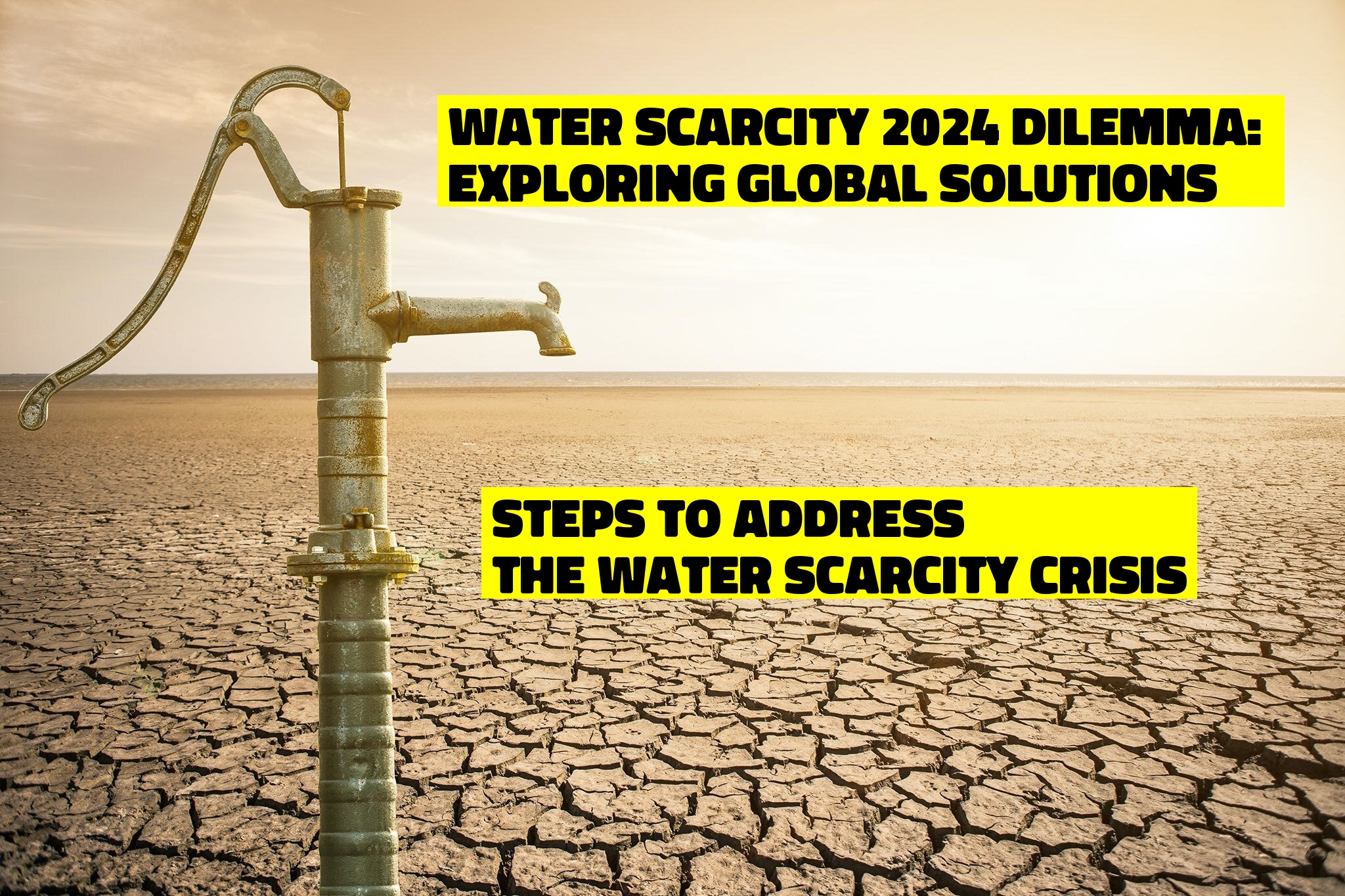Water scarcity is neither a personal problem nor a nation’s problem; it’s always a global problem, and a legend has said that World War III will occur because of water.
There is plenty of water; you just let it flow into the sea instead of recycling it back into the land. Controlled reservoirs could be built along the river’s path to store water and help generate electricity. In areas of drought, you could build underground drip irrigation systems to help regenerate the soil, like they do in India. There’s nothing wrong with the amount of water that we have but how we manage it.
I bet we waste more water by turning our faucets on full, but we never use that much water. It’s just a matter of common sense. If you are running out of water, why would you let it run into the sea? How much is it going to cost you to recycle your river water? Well, how much is it going to cost you if you don’t do it?
The problem is that people don’t know where their boundaries end. If you ask anyone to stop wasting water, electricity, or food, they will say, “It’s my choice, whatever I do with it.” I have seen this a lot of times in Delhi about electricity because it’s free. Even in my school, students switch on lights even when it’s a sunny day and there is more than enough light entering the class from windows; they are just like, “We are paying the fees.”.
I am living in Delhi, where I observed that in the last 5–10 years, the drinking water bottle supply has become a new business here, and about 80–90% of people are buying drinking water bottles or have water filters in their houses. The remaining people are unable to do something and are drinking unfiltered water, which makes them ill. We need to do something for them.
I have seen a lot of places in Delhi where people just open taps to free drinking water provided by the government. I tried to close many of them, but most of the taps have some kind of problem. The government is providing free water in Delhi, but we are not looking at how we use it. If we somehow manage those taps, then we can save a lot of water.
One of my friends lives in Bangalore, India, and he added more to my article: I know how difficult it is to get water supply continuously in a few areas. People don’t understand the optimal usage of resources and just take them for granted. Many of the areas suffered from severe water scarcity during the summer. It’s not just water, but even other resources. I hope everyone understands that these resources belong to everyone and uses them carefully.
My other friend added this: I work with the government, and therefore I get to see what actually is happening in the implementation of policies. But unfortunately, consents are being given for using groundwater without any sincerity. Policies just stay on paper as a formality. Residential areas have illegal boreholes, even in cities like Jaipur, where water is scarce.
Of course, as citizens, we should take steps to save water. But people who are working in government organizations are also required to take this matter seriously. I’m an officer, but single-handedly, I cannot make a change. Every day, I see the problems being dealt with with the utmost vagueness. 90% of Indians are ignorant. I request everyone to take steps.
In our area, we have constructed mini-wells just in front of our house that are connected by a pipeline from the roof, so when it’s raining, all the water from the roof will be collected in that mini-well, so pure rainwater will be harvested for summer use.
I have a few solutions that may contribute to the problem of water scarcity. Here are a few steps to address the water scarcity crisis:
Steps to address the water scarcity crisis
- These days, our villages are too developed, literally converted into cities. We have to stop that type of development and only develop the required things in villages; not too many concrete buildings are needed for villages, and we have to plant more trees there as well.
-
We can also do something like, in building the roads, we will use the plastic and waste products to make sustainable highways that can easily pass water to the group surface. Just an idea, but we can try.
-
For water harvesting, encourage farms to make Khet talavadi, which means farm pond in the local dialect.
-
Those who are constructing a new house or renovating their old ones can construct a separate water tank where water from the bath tub, kitchen sink, and washing machine (except flush) can be collected, filtered with basic filters, and reused for things like washing cars, terraces, mobbing floors, etc. We could also use the flush tanks, which have a wash basin over them, and all that water could be used again!
-
Rainwater harvesting should be made compulsory in all buildings, especially in urban areas.
-
Borewells are almost common everywhere. If you dig a borewell, at some point you can dig one more hole 5 to 7 meters away from your borewell, like 50 or 60 feet, where you can put only PVC pipes and just put something on it like a net for safety purposes. The monsoon rain will directly go into these pipes. This can help your ground-level water be filled in the rainy season.
-
I wash small clothes in a bucket and use that water in a flush.
-
Washing the veggies or rinsing the lentils before cooking, but underneath I’m keeping a bucket and that water I’m giving to the plants.
-
Mostly, whatever needs to be cleaned or washed, I have made it a habit to keep the bucket underneath and use it for toilet flushing.
-
I’ve also reduced the water flow in my wash basin to save as much water as possible.
-
I’m never giving my 2-wheeler a wash. Instead of wiping it with a damp cloth or, when it rains heavily, simply keeping it under the rain, this helps me save some water.
There are many small ideas we can share to help people solve this type of problem, which may be too serious in the future.

